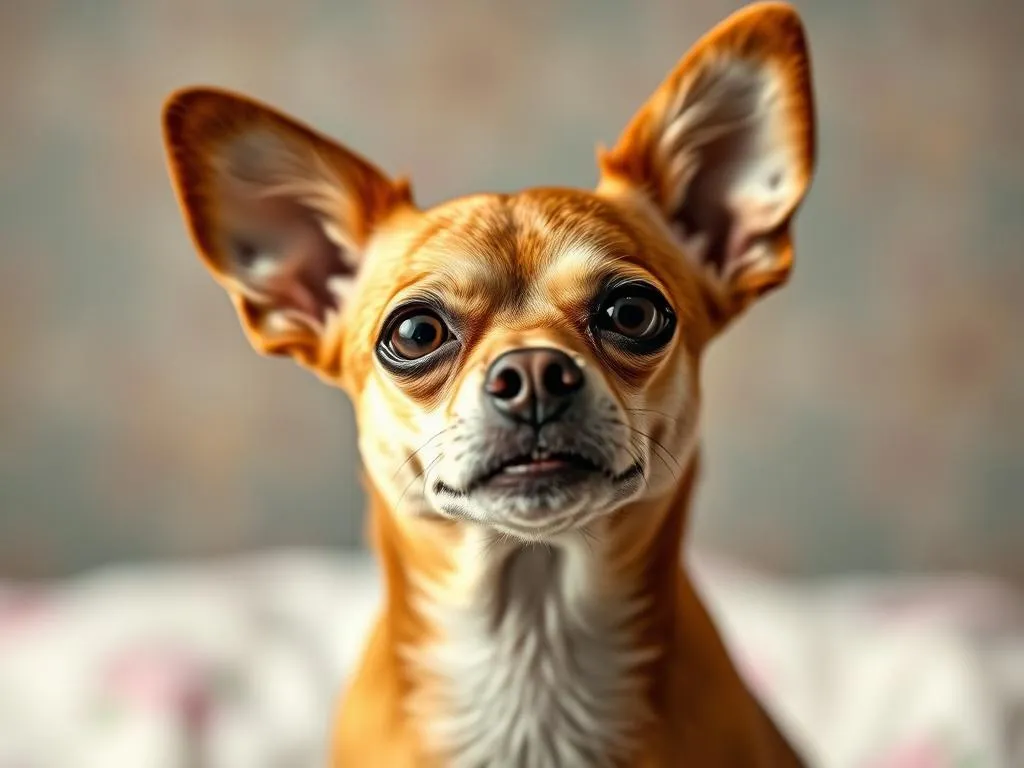
Introduction
Chihuahuas, one of the smallest dog breeds, have captured the hearts of many with their vibrant personalities and charming quirks. However, these little companions often face a bad reputation that can overshadow their positive traits. Understanding the nuances of dog breeds and their reputations is crucial for potential pet owners, advocates, and the general public.
The perception of a breed can significantly influence adoption rates, behavior expectations, and overall public sentiment. In this article, we will explore why Chihuahuas have a bad reputation, delving into historical, behavioral, and social factors that contribute to their image. By providing a balanced view, we aim to foster a greater appreciation for this unique breed.
Understanding the Chihuahua Breed
History and Origin
The story of the Chihuahua begins in Mexico, where it is believed that this breed descended from the Techichi, a companion dog kept by the ancient Toltec civilization. The breed gained prominence in the 19th century, particularly in the state of Chihuahua, after which it was named. Chihuahuas hold cultural significance in Mexico and are often associated with various folklore and traditions, symbolizing loyalty and companionship.
Over time, Chihuahuas transitioned from ancient companions to popular pets, especially in urban settings. Their compact size makes them ideal for city living, and their playful nature endears them to many families. However, this popularity has also led to misconceptions and a bad reputation that have persisted through the ages.
Characteristics of Chihuahuas
Chihuahuas are known for their distinct physical attributes and lively personalities. Here are some key characteristics:
- Size: Typically weighing between 2 to 6 pounds, Chihuahuas are among the smallest dog breeds.
- Coat Types: They come in both short-haired and long-haired varieties, with an array of color options, including fawn, black, white, and chocolate.
- Temperament: Often described as alert, confident, and sometimes feisty, Chihuahuas can be both affectionate and independent.
- Common Behaviors: They tend to form strong bonds with their owners, may exhibit protective instincts, and are known for their vocal tendencies.
Understanding these characteristics is essential for dispelling myths surrounding the breed and addressing the bad reputation that often accompanies them.
The Root Causes of Bad Reputation
Misunderstandings and Stereotypes
One of the primary reasons why Chihuahuas have a bad reputation is rooted in misunderstandings and stereotypes perpetuated by media and popular culture. Chihuahuas are often portrayed as aggressive, yappy, and overly dramatic, leading to a skewed perception of their true nature.
Media representations, such as the infamous “Chihuahua” character in commercials and movies, contribute significantly to these stereotypes. These portrayals can amplify negative traits, overshadowing the breed’s positive and loving qualities. As a result, many people approach Chihuahuas with preconceived notions that are not reflective of reality.
Behavioral Traits
Chihuahuas, like many small dog breeds, can exhibit fear-based behaviors that may be misconstrued as aggression. This behavior often stems from their small size, which can make them feel vulnerable in various situations. Several factors contribute to these behaviors:
- Lack of Socialization: Chihuahuas that are not properly socialized during their formative months may develop anxiety and fear toward larger dogs or unfamiliar environments.
- Owner Influence: Owners who do not provide consistent training or who reinforce fearful behaviors can inadvertently contribute to their dog’s aggressive tendencies.
- Comparison with Larger Breeds: When compared to larger breeds, Chihuahuas may react more defensively due to their size, leading to perceptions of aggression.
Understanding these behavioral traits helps to clarify that their bad reputation often arises from environmental factors rather than inherent breed characteristics.
Owner Responsibility and Training
The role of responsible ownership cannot be overstated when discussing why Chihuahuas have a bad reputation. Owners significantly influence their dog’s behavior through training, socialization, and day-to-day interactions. Here are some important considerations:
- Training and Socialization: Proper training and early socialization are essential for any dog, particularly for Chihuahuas, who may be more prone to fear-based reactions. Exposure to various environments, people, and other animals can help them develop into well-adjusted companions.
- Breeding Practices: Poor breeding practices can lead to behavioral and health issues. Responsible breeders prioritize temperament and health, while irresponsible breeders may prioritize profit over the well-being of the dogs, leading to more behavioral problems.
- Owner Awareness: Owners must be aware of their dog’s needs and behaviors. Chihuahuas require consistent training and attention, and neglecting these aspects can further contribute to their bad reputation.
The Impact of Reputation on Chihuahuas
Public Perception
The negative stereotypes associated with Chihuahuas can have far-reaching consequences. These perceptions often affect adoption and rescue efforts, as potential owners may be deterred by the breed’s bad reputation. The stigma surrounding Chihuahuas can lead to fewer individuals considering them as viable pets, despite their many positive traits.
Many shelters and rescue organizations report that Chihuahuas are often the last to be adopted, primarily due to misconceptions about their behavior. This situation highlights the importance of changing public perceptions to encourage responsible ownership and increase adoption rates.
Personal Experiences
While the media and societal perceptions may paint a negative picture of Chihuahuas, many owners have positive anecdotes to share. Personal experiences can provide a counter-narrative to the generalized bad reputation of Chihuahuas.
For instance, many Chihuahua owners describe their pets as loyal companions who are affectionate, playful, and intelligent. Case studies of well-behaved Chihuahuas show that with proper training and socialization, these dogs can thrive in various environments and develop meaningful relationships with their owners.
The Role of Advocacy
Organizations and advocates play a crucial role in changing the narrative around Chihuahuas. Many groups work tirelessly to promote responsible ownership and highlight the qualities that make Chihuahuas wonderful pets. These advocates focus on education, raising awareness about the breed’s needs, and dispelling myths.
Success stories of Chihuahuas who defy stereotypes serve as powerful testimonies to the breed’s potential. By sharing these stories, advocates aim to encourage more people to consider adopting Chihuahuas and to foster a more positive image of the breed.
Balancing the Narrative
The Positive Aspects of Chihuahuas
Despite the bad reputation they often face, Chihuahuas possess many positive attributes that make them exceptional companions:
- Loyalty and Companionship: Chihuahuas are known for their strong bonds with their owners, often forming deep attachments that result in unwavering loyalty.
- Intelligence and Trainability: These small dogs are quick learners and can be trained effectively when approached with patience and consistency.
- Adaptability: Chihuahuas adapt well to various living situations, making them suitable for apartment living or homes with limited space.
Their unique characteristics and positive traits deserve recognition beyond the negative stereotypes that frequently define them.
Responsible Ownership Strategies
To ensure that Chihuahuas thrive and do not contribute to their bad reputation, prospective owners should consider several best practices:
- Training and Socialization: Early training and socialization are essential. Engaging in puppy classes and exposing Chihuahuas to new experiences can help mitigate fear-based behaviors.
- Selecting a Reputable Breeder or Rescue: Researching breeders and rescues ensures that you are getting a well-bred dog with a good temperament. Responsible breeders prioritize health and behavior.
- Fostering Positive Behaviors: Encouraging positive behaviors through reinforcement, rather than punishment, can significantly improve a Chihuahua’s demeanor and overall temperament.
By adopting these strategies, owners can help shift the perception of Chihuahuas and showcase their potential as loving companions.
Conclusion
The bad reputation of Chihuahuas often stems from misunderstandings, stereotypes, and the influence of media portrayals. By examining the breed’s history, characteristics, and the factors contributing to their reputation, we can gain a more nuanced understanding of these small yet spirited dogs.
Chihuahuas have much to offer as loyal companions, and with responsible ownership and proper training, they can thrive in various environments. It is crucial to encourage a shift in perception and recognize the value these dogs can bring to our lives. Understanding Chihuahuas beyond the stereotypes will not only benefit the breed but also enrich the lives of countless families and individuals who choose to welcome them into their homes.









